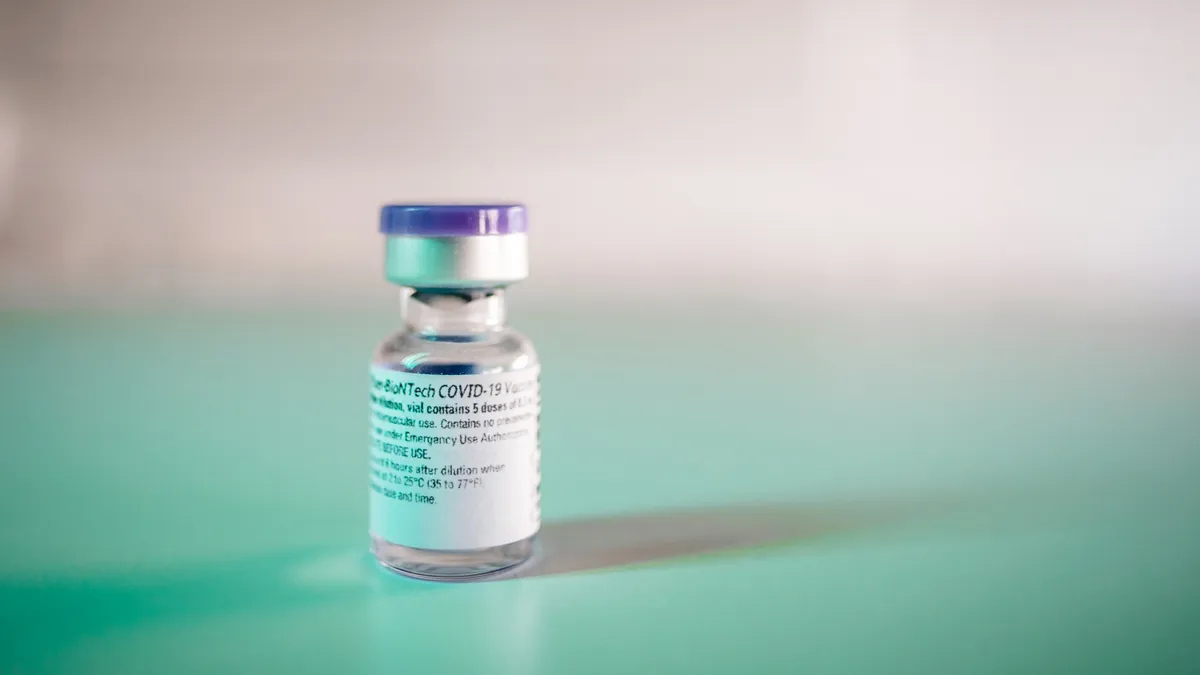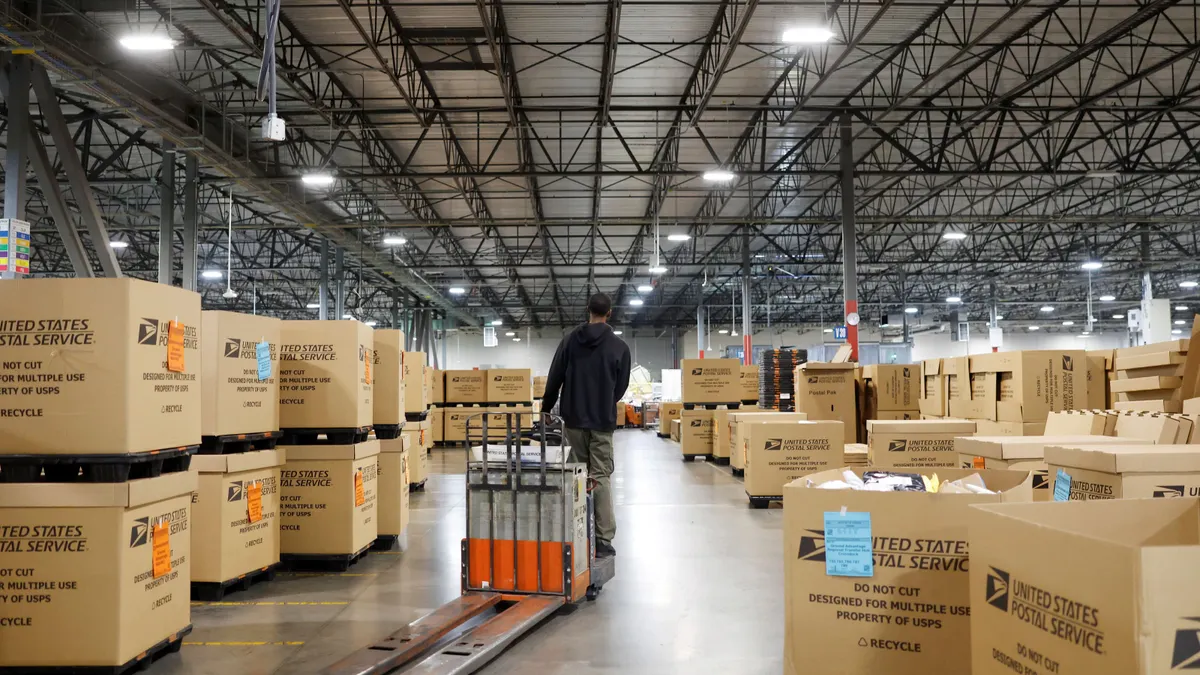Dive Brief:
- The U.S. government has finalized orders for 200 million more vaccine doses from Moderna and partners Pfizer and BioNTech, expanding by a third the supply under contract from the companies.
- All told, the U.S. now has 600 million doses on order from the drugmakers, enough to cover 300 million Americans with the two-shot vaccine regimens. Much of that supply, however, won't be available for several more months, meaning demand will likely continue to exceed what's available in the near term.
- The original agreements signed last summer by Moderna and Pfizer had provided the U.S. the right to purchase hundreds of millions of additional doses, options that it's now exercising. Some 46 million doses have so far been administered throughout the country, according to data from the Centers for Disease Control and Prevention.
Dive Insight:
The U.S. is ordering more reinforcements to bolster a vaccination effort that's slowly beginning to gather momentum. The weekly average of doses administered ticked over 1.5 million doses last week, according to data collected by Bloomberg, roughly double the rate one month ago.
Pfizer and Moderna have committed to each deliver 100 million doses to the U.S. by the end of March. Moderna expects it can deliver a second tranche of 100 million doses by the end of May, and hopes to provide a third order of 100 million doses by July.
Pfizer previously said it would deliver 70 million of the second 100 million doses the U.S. ordered by the end of June, with the remainder to come in July. The large drugmaker gave no timeline for delivery of the U.S.' new order.
Pfizer is adding suppliers and expanding its manufacturing capacity to meet its goal of making 2 billion doses of the COVID-19 vaccine by the end of 2021, CEO Albert Bourla said on the company's earnings call early this month. Part of Pfizer's capacity expansion could rely on contract manufacturers, according to slides the company presented during the call.
Many states are still struggling to administer all the shots they're allocated by the federal government, however, with 19 states and the District of Columbia having doled out less than 70% of their supply, the Bloomberg data show. And vaccination remains prioritized for healthcare workers, older adults and those with preexisting health conditions due to limited supplies.
In remarks at the National Institutes of Health last Thursday, President Joe Biden said both drugmakers had agreed to speed up deliveries of some doses from June to May.
"We remain in the teeth of this pandemic," Biden said. "January of 2021 was the deadliest month we've had."
Biden's administration is working to increase the federal government's involvement in what has to date been a chaotic and halting immunization campaign. Initial steps have included shipping vaccine doses directly to pharmacies and recruiting federal agencies to staff U.S. government-run vaccination sites.














